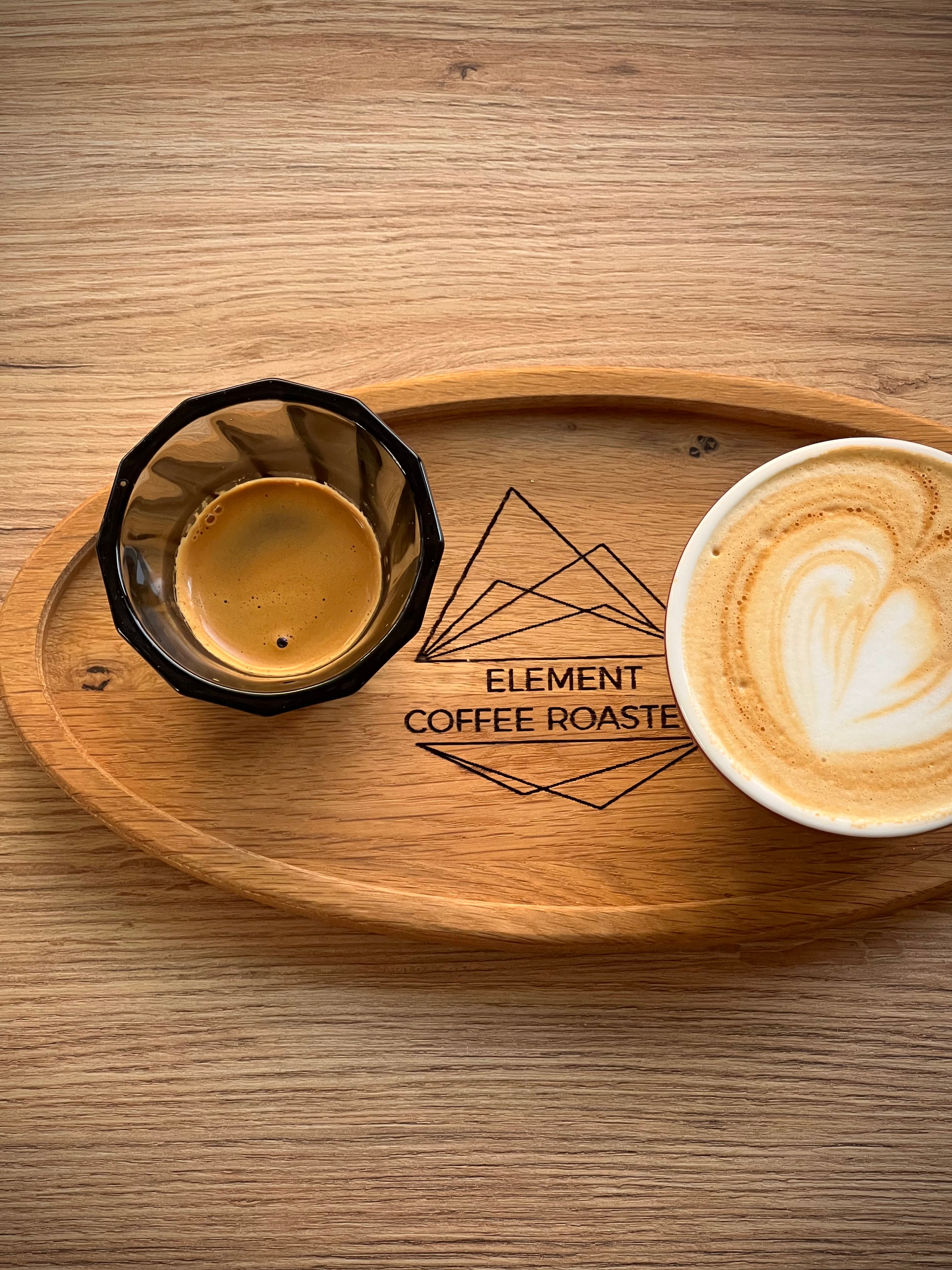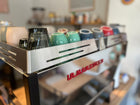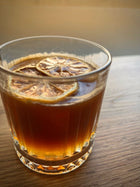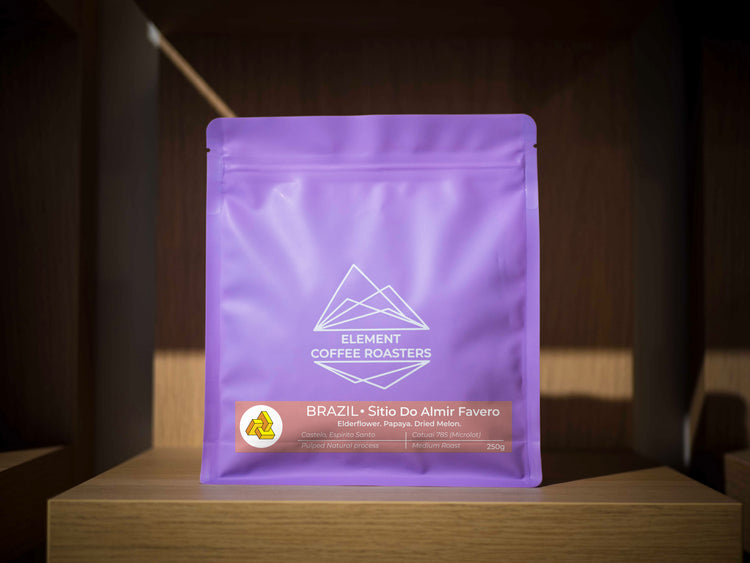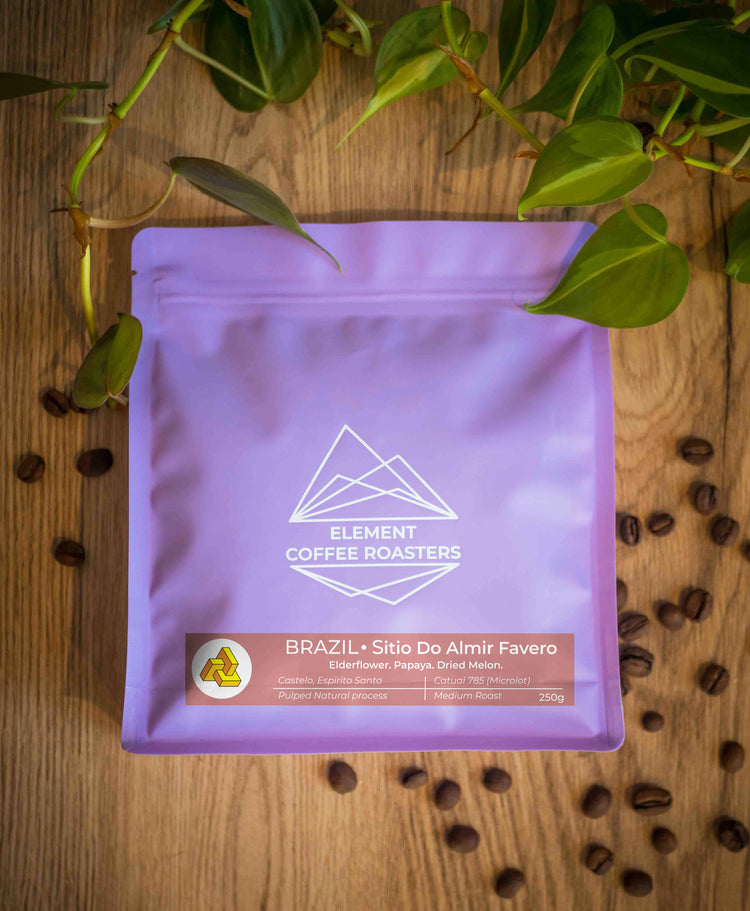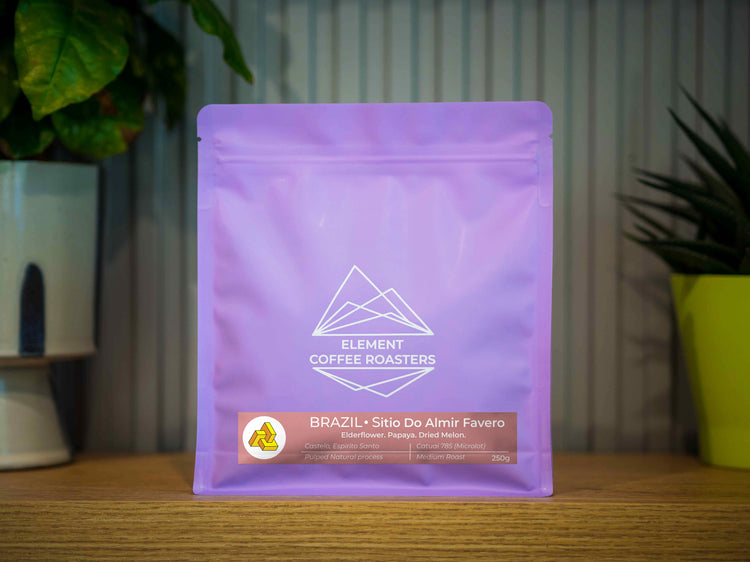More about Brazil Fazenda Samabaia
Description
More
Less
Born and raised in the Bateia community, Elizelto comes from the Fávero family, one of the first families to settle in the Bateia region, around 1912. His grandparents, Italian immigrants, set down roots on the slopes of the region's stone mountains where they made their home. The family's history of growing coffee began with Elizelto's father, Mr. Almir Fávero. Until then, the family grew few coffee trees for their own consumption. Mr. Almir, a man ahead of his time, saw potential in the property for cultivation and decided to invest in coffee growing. The gamble paid off very well, and Mr. Almir could raise his family with the money from coffee growing. Since then, Elizelto and his two brothers have followed in their father's footsteps and today manage the property together.
In 2016 the property began its transition from traditional coffee to specialty coffee production. The property is located in an excellent terroir for the production of special lots: altitudes between 900 and 1,100 meters, excellent precipitation rates throughout the year, and the care of selective harvesting and post-processing carried out by the producer has surprised every year in terms of quality. Some trophies have already been won by the coffees produced on the site, with the most recent of them in 2021 in the quality contest promoted by Bourbon Specialty Coffees in the region. Elizelto came in 6th place in the award with a microlot of the Catuai variety, which scored 89.25 points.
Country and Region Catucai 785 (microlot)
More
Less
Process: Natural Anaerobic
More
Less
Variety: Catucai 785 (microlot)
More
Less
Description
Born and raised in the Bateia community, Elizelto comes from the Fávero family, one of the first families to settle in the Bateia region, around 1912. His grandparents, Italian immigrants, set down roots on the slopes of the region's stone mountains where they made their home. The family's history of growing coffee began with Elizelto's father, Mr. Almir Fávero. Until then, the family grew few coffee trees for their own consumption. Mr. Almir, a man ahead of his time, saw potential in the property for cultivation and decided to invest in coffee growing. The gamble paid off very well, and Mr. Almir could raise his family with the money from coffee growing. Since then, Elizelto and his two brothers have followed in their father's footsteps and today manage the property together.
In 2016 the property began its transition from traditional coffee to specialty coffee production. The property is located in an excellent terroir for the production of special lots: altitudes between 900 and 1,100 meters, excellent precipitation rates throughout the year, and the care of selective harvesting and post-processing carried out by the producer has surprised every year in terms of quality. Some trophies have already been won by the coffees produced on the site, with the most recent of them in 2021 in the quality contest promoted by Bourbon Specialty Coffees in the region. Elizelto came in 6th place in the award with a microlot of the Catuai variety, which scored 89.25 points.
Country and Region Catucai 785 (microlot)
Process: Natural Anaerobic
Variety: Catucai 785 (microlot)
You May Also Like
More about us on social media

